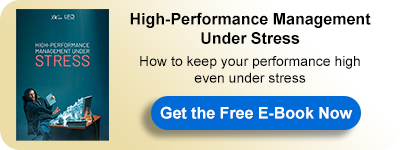How Stress is Triggered
Imagine yourself driving your car down a highway on a balmy spring day. The sky is clear and blue, the air is cool and fresh. You turn off the air conditioning and lower the windows to take advantage of the day.
As you watch the hills and trees as you pass by, you're not feeling care in the world. Routinely, you look into the rear-view mirror. A car is behind you. You have an eerie sense that the car has been following you. You step on the accelerator and pull away. But the car speeds up, too.
Now you feel a surge of energy in your body, as you tighten your grip on the steering wheel. You step harder on the accelerator. The car behind increases its speed and stays with you.
You notice there are two men in the car and one reached in the back seat and grabs a long object. "It's a shotgun," you say to yourself.
Every muscle in your shoulder tightens. You can feel your heart beating faster, and you begin to perspire. Your eyes are fixed straight ahead on the highway. You push the accelerator to the floor.
Up ahead, on the side of the highway, two people are waving their hands. For an instant, you think about stopping and getting their help. But before you can stop, you're past then.
As you swing around a curve, there is a sign with large red letters - Bridge Out - Danger. "This is it," you think. Your life passes in review. This is a terrible way to go - alone, shot on a deserted highway.
As you approach the bridge, you slow down. The car behind you pulls up beside you. From the corner of your eye, you see the front window moving down. As a last act of courage, you decide you'll face them eye to eye, and you slowly turn your head toward them. A gruff, unshaven man looks you in the eye and says, "Can you tell us the direction to the lake, we're lost."
Your eyes quickly scan inside of their car and you see fishing poles and tackle boxes. What you thought was a shotgun turns out to be a collapsed fishing pole in a protective cover.
After giving them directions, you slowly sink down in the driver's seat. You're exhausted. Your excess speed was summoned to fight your battle and cope with the emergency that you thought confronted you.
Similarly, any threat to our well-being sets off alarm bells in us. At these times, like the flight down the highway, our autonomic nervous systems take over. Our body mobilizes its forces. We jump to the ready. We're on red alert!
But, what are these alarms in everyday life? What makes us hit the accelerator pedal to the floor? Some alarms go off because of what's going around us in our situation or organization. There are alarm bells built within us individually, which we take with us wherever we go, irrespective of what's happening in the situation. Listed below are some universal alarms, some source problems that are the root cause of stress.
Situationally, the alarms or source problems are:
- Unrealistic deadlines - "I'll never get it done by then!"
- Vague objectives - "What am I supposed to accomplish?"
- Unclear lines of authority and responsibility - "Who's supposed to do what?"
- Non-support from key people upon whom we must rely - "Isn't there anybody I can depend on around here?"
- Contradictory expectations from at least two key people pulling in opposite directions - "I'm betwixt and between, they're pulling me apart."
- Overload from the amount to be done or from the lack of experience doing it - "Their inexperience is weighing me down."
Individual alarms and source problems are:
- Fear of failure or actually failing - "It doesn't look like it's going to work."
- Invasion of our territory, real or imagined - "That's not their business, it's my responsibility."
- Fear of being deprived of what we need, or actual deprivation - "You can't take that from me."
- Perceived attack on our self-esteem and integrity -"You can't say that about me."
- Resistance and opposition to what we want to accomplish - “I want to do what I need to do."
- Competition or rivalry to win or lose, be right or wrong - "You win, I lose, but it's your fault."
The alarms or source problems are everywhere. Which ones send you into the alarm state of stress? Which alarms make you vulnerable to stress?
What is stressful for me, however, may not be stressful for you. Our alarms may be different, or the same alarm may have to clang longer and louder for one of us to hear it. For some of us, only a faint sound of the alarm sets us off.
Life orientations survey LIFO is the best stress awareness tool you can find. It is not measuring your stress level at a certain point, and it is not a personality type test.
LIFO survey describes your identity, how you want to be seen by the world and by yourself. What is your orientation to the external world when things are going fine, and how this orientation change when things go not as you expect them to go?
Those four basic orientations are Supporting Giving, Controlling Taking, Adapting Dealing, and Conserving Holding. When you are being faced with external stressors or source problems, your basic identity is in danger, you feel like you lost control about how you want to be seen, and thus you react in a certain way based on your life orientation.
LIFO survey is a very helpful tool to increased resilience that makes you look at stress management from a different perspective.
For more about this topic, download our latest book "High Performance Management Under Stress" for FREE:
